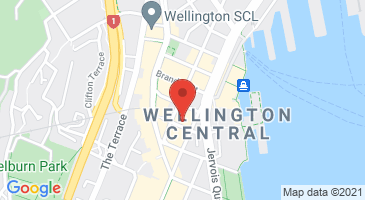[HS] Public Inquiries: Good, Bad, Better
In recent years we have seen a number of significant Public Inquiries, including Royal Commissions, both in New Zealand and in other jurisdictions. Hear from barristers who have been involved in some of the most significant Public Inquiries in recent New Zealand history to hear insights into the current law and practices of Public Inquiries, as well as their views on the strengths and weakness of the Public Inquiry process to engage in fact-finding and prevent future recurrences. 249NZW03
Description
Attend and earn 3 CPD hours
2.00pm to 5.15pm Public Inquiries: Good, Bad, Better
Led by barristers Ben Keith (Woodward Street Chambers, Wellington) and Matthew Smith (Thorndon Chambers, Wellington), review the current law, practice, strengths and failings of public inquiries, with reference to, among others:
- The Royal Commission of Inquiry into Historical Abuse
- Skerret-White & Ors v Minister for Children & Anor [2024] NZCA 160, upholding the summons powers of standing commissions of inquiry
- Good practice in other jurisdictions, including the Australian Royal Commission into the Robodebt Scheme and the United Kingdom Post Office Horizon inquiry
- Other formal and informal conduct and policy inquiries
Presented by Ben Keith, Barrister, Woodward Street Chambers and Matthew Smith, Barrister, Thorndon Chambers
About your workshop presenters
Matthew Smith
Matthew has a broad public and commercial law practice, encompassing regulatory, Māori, human rights and environmental law, and with a special expertise in judicial review and the use of public law tools to achieve meaningful outcomes for clients. Matthew is the sole author of the New Zealand Judicial Review Handbook - a comprehensive text on judicial review in New Zealand that is now in its second edition.
Ben Keith
Ben principally practises in administrative, human rights and public international law. He has previously worked as a specialist Crown Counsel with the New Zealand Crown Law Office and was also the first Deputy Inspector-General of Intelligence and Security. Ben has conducted proceedings at all levels of the New Zealand court system, including matters before the Court of Appeal, Supreme Court, Privy Council and the Waitangi Tribunal, as well as in a number of other jurisdictions and before United Nations fora.
Learning Objectives:
- Understand the current law and practices of public inquiries
- Learn about the strengths and failings of public inquiries
Presenters
Matthew Smith
Matthew is a barrister at Thorndon Chambers in Wellington. He has a broad public and commercial law practice, encompassing regulatory, Māori, human rights and environmental law, and with a special expertise in judicial review and the use of public law tools to achieve meaningful outcomes for clients. Matthew works across the entire range of public law and has acted for public sector bodies (including Crown entities and commissions of inquiry), individuals, entities of many kinds (including companies, incorporated societies, trusts and Māori incorporations), industry groups and NGOs. He has appeared in all of the higher Courts, and in a number of specialist courts and tribunals - including the Waitangi Tribunal and the Māori Land Court. Matthew's non-litigation work tends to involve the provision of legal and strategic advice and support in a range of settings, including public inquiries, regulatory investigations, consultation processes and Parliamentary/law reform processes. Matthew is the sole author of the New Zealand Judicial Review Handbook - a comprehensive text on judicial review in New Zealand that is now in its second edition.
Ben Keith
Ben is a barrister at Woodward Street Chambers, Wellington, principally practising in administrative, human rights and public international law. He has previously worked as a specialist Crown Counsel with the New Zealand Crown Law Office and was also the first Deputy Inspector-General of Intelligence and Security. Ben has conducted proceedings at all levels of the New Zealand court system, including matters before the Court of Appeal, Supreme Court, Privy Council and the Waitangi Tribunal, as well as in a number of other jurisdictions and before United Nations fora. Significant public matters include precedent decisions in administrative and constitutional law; human rights; national security; public and private international law; and regulatory/investigatory powers, as well as numerous published legal opinions and other work. His voluntary professional activities include regular substantial pro bono matters and past membership of New Zealand Law Society law reform committees and other bodies.
Venue
InterContinental Wellington
InterContinental Wellington
Level 1, 2 Grey Street
Wellington 6011
New Zealand

Parking information
Limited valet parking available at $20 per day. Additional parking available at Wilson Parking with $5 per half hour and $22 for early-bird.
Parking is not included in the registration fee and price is subject to change.
Directions
The Intercontinental is a 2 min walk from Lambton Quay which has a number of buses going to airport and suburbs. It's a 10 min walk to the nearest train station.
Taxis are also available downstairs at the hotel entry.